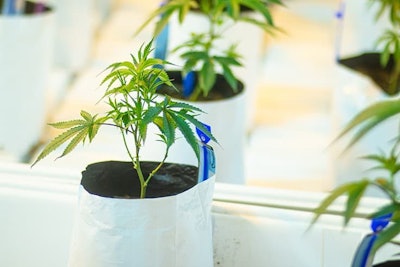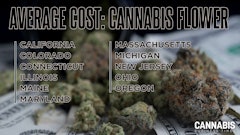
Even with a global pandemic shuttering municipal offices around the U.S., the team at Exclusive Brands found new ways to work with local officials to open an outdoor cultivation site in Arlington, Mich., in June.
Narmin Jarrous, executive vice president of business development and director of social equity at Exclusive Brands, says that the sudden whirlwind brought on by the coronavirus pandemic turned the prospects upside-down. But, like so many other twists in the cannabis industry, it helps to be nimble.
“You can plan and plan and plan and then you have things like COVID jump out at you, and you’re not really quite sure what to do,” Jarrous says. “We had to pivot our strategy.” The late June opening was only a few weeks off from the company’s original plans.
Most of the disconnect came from the springtime shuttering of municipal offices. Local inspections took longer to set up—and even then they happened virtually. The Exclusive team set up FaceTime calls to give inspectors a close look at the new outdoor site. That was a challenge for all the obvious reasons, but it also stuck a wrench in the company’s intent to form meaningful relationships with regulators off the bat.
“All of our employees know the state workers and the inspectors,” Jarrous says, “because we think the more transparent we are with them and the more familiar they are with us, the more comfortable they’ll be with the process.”
In Arlington, Exclusive has plans to make the most of six cultivation licenses (for a total of 9,000 plants across 30 acres). Jarrous points to flower sales remaining high throughout the strange 2020 sales year and also references rising edibles trends as more people stay at home. She says that adding an outdoor site like this one will help fortify an adult-use market that’s very much in the developing stages. Adult-use sales began in earnest in Michigan at the start of this year.
“We want to make sure that we have this good amount of biomass being cultivated, so that we can support the industry statewide,” she says. “The things that are grow here aren’t just going to be sold at Exclusive [retail] locations. We’ll process them in our processing centers and we’ll distribute them throughout the state.”

























